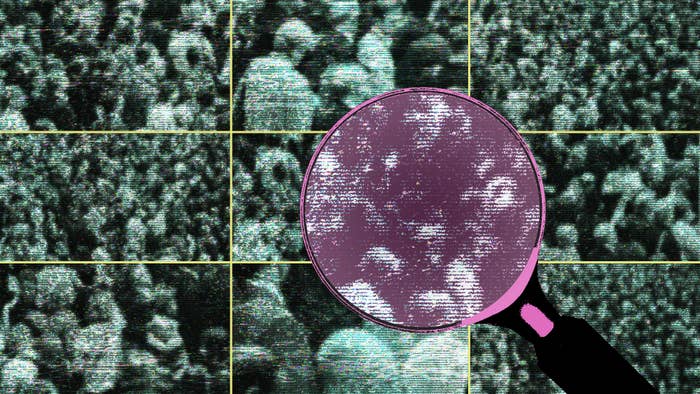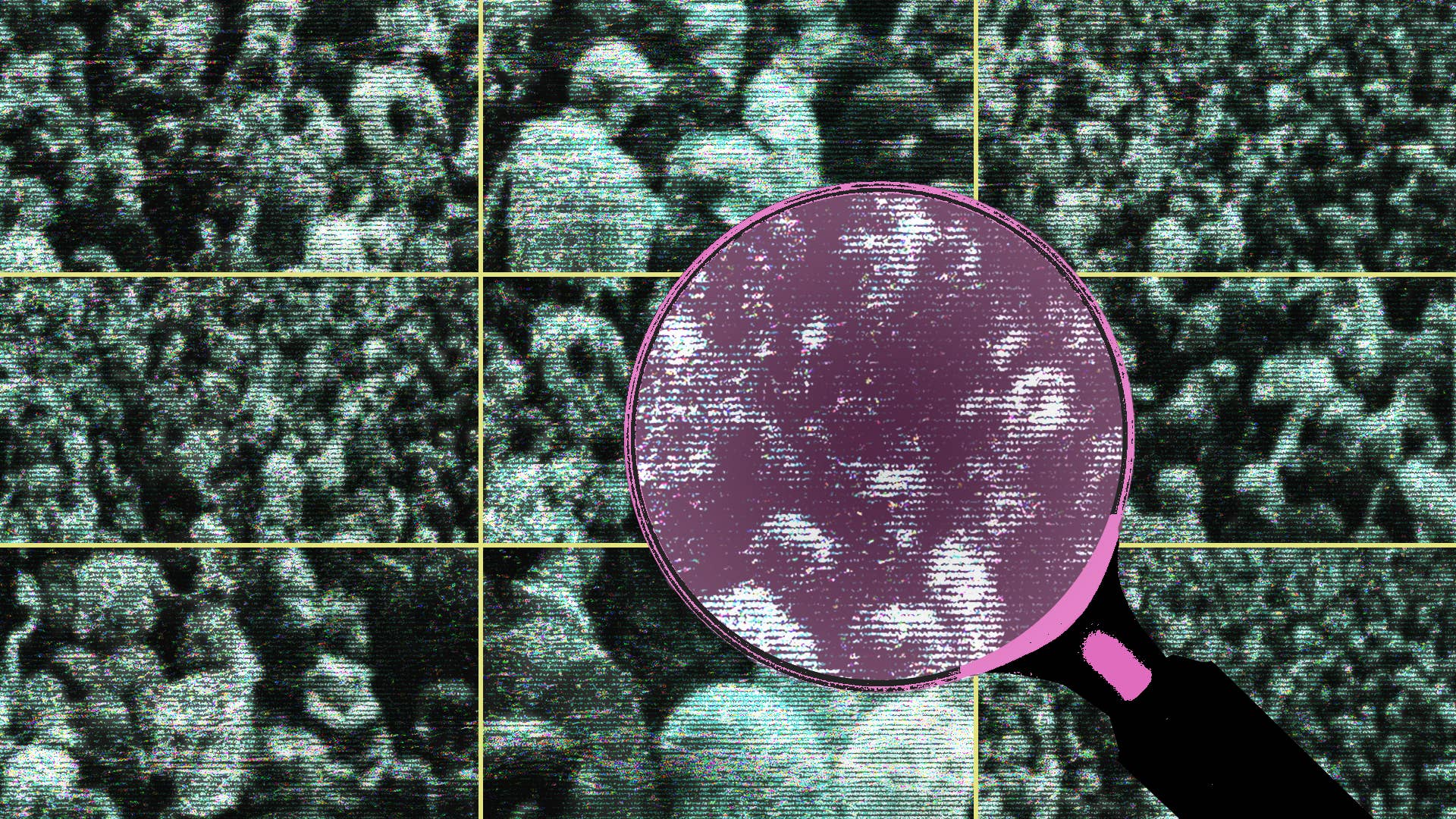
In January, news broke that Justin Johnson, a.k.a. rapper Straight Drop, was being indicted for murdering Young Dolph. This came as a revelation to many—but not to everybody. Just days after Dolph’s November death, Johnson had been connected to the incident by social media users and YouTube commenters, who pieced together surveillance footage from the crime scene with music videos and social media posts.
YouTubers like Cut 2 The Chase TV posted videos titled “Young Dolph Killers Jojo Splatt And Straight Drop Car Spotted At Rappers Crime Scene,” and an Instagram account named @Niyah__Nicole21 was created, which offered post-by-post breakdowns of theories about the murder. The noise got so loud that Straight Drop, Splatt, and others were harassed on Instagram and in the YouTube comments of their music videos for weeks before arrests were made.
The speculation surrounding Dolph’s murder was one of the biggest examples of a concentrated, crowd-sourced investigation into a violent crime. But it’s not the first. Since the inception of social media, people have been playing internet investigators by speculating on violent incidents and drawing their own conclusions.
The trend is a reflection of where the internet has taken us: people have time on their hands, so they dig through public records and gather clues online to come up with their own theories. Sometimes, internet investigations are playful, like revealing the date of Ice Cube’s “Good Day,” chasing hints about Beyoncé, Rihanna, or Nicki Minaj album release dates, or theorizing that Kanye West’s 2018 controversies were the result of Andy Kaufman-inspired performance art. But unfortunately, humorous sleuthing can get dangerous when it crosses the bounds into matters of life and death.
YouTuber Cut 2 The Chase tells Complex he covers the ins and outs of ongoing cases, such as Dolph’s, in order to “get justice for people.” Many people like him feel they’re doing right by Dolph by amplifying who they think killed him, but there’s a deadly downside to trying to do the cop’s jobs for them.
There are countless YouTubers building followings from reporting on news that’s too nebulous for credible outlets to report, and there are faceless social media accounts implicating people in anonymity. But whether these amateur investigators are seeking acclaim, justice, or both, the net results can be devastating. Criminal defense attorney Bruce Rivers implores people to stop trying to do the police’s job, because it’s essentially rolling the dice with people’s lives.
While admitting that the hypothesizing “solves some crimes” because “somebody might pick something up that a cop missed,” Rivers warns that the reality is “we’re talking about some murderous fucking beefs… and [if] you wrongfully implicate somebody, you could get somebody killed very easily.”
There were numerous shootings in the aftermath of Dolph’s death in Memphis, at least one of which Memphis cops divulged may have been linked to Dolph’s death. What if one of the wrongfully accused had been killed due to inaccurate internet conjecture? Perhaps if social media users considered the existential stakes of reckless accusations, they’d stop. But we may be too far gone, as the postulating has been happening for years.
“It’s so easy to sit there behind the keyboard, and be whatever, without any responsibilities. The thing about a journalist, a true journalist, is that they’ve got ethics and generally they’ve got some responsibility for the content they put out there.” – Attorney Bruce Rivers
One of the first major instances of internet sleuthing in the modern social media era was the 2016 shooting at New York’s Irving Plaza. Social media users broke down the Irving Plaza surveillance footage, frame by frame, to create a narrative of what they suspected happened that night, even “revealing” who they thought was in the footage. The shooting is still an open case, so there is no “official” account of what happened based on testimony, but it was one of the first major instances where public figures had to contend with being implicated by fans in an incident where someone died. Someone will likely be held accountable for the death of Ronald “Banga” McPhatter one day, and the internet may have had a hand in helping police investigate.
In 2017, on the day of XXXTentacion’s tragic murder, the late rapper’s fans accused Florida rapper Soldier Kidd of being involved in the shooting because he posted a Snapchat video near the scene of the crime and posted a mask-clad Instagram photo fitting the cop’s disclosure of a suspect with a red mask. His XXX chain, which represented his own XXX movement (which had nothing to do with XXXTentacion) raised suspicions even more. Fans harassed his social media accounts until four other men were eventually apprehended and charged with the murder.
When Dedrick Williams was arrested for the murder a week later, Soldier Kidd took to Instagram and addressed people who he said were trying to “crucify” him. “I just feel like I deserve an apology from all y’all, everybody in my comments, all the celebrities trying to promote that I killed this man,” he said. At the age of 18 at the time, he was just gaining momentum with his music, but he’s since expressed that the moment did damage to his career.
Soldier Kidd experienced a momentary boost in streams, but he had to create a new Instagram account, and he says he’s still harassed by the late rapper’s supporters. Two years later, Soldier Kidd told Shawn Cotton of Say Cheese that being implicated in the XXXTentacion shooting hurt more than it helped. Cotton quipped that he was “the only person to defeat the internet,” but Soldier Kidd was candid that the situation “brought me down,” mentally, and “things slowed down” after that. And in the immediate aftermath of the murder, he faced threats of retaliation from fans who believed he had something to do with it. His plight exemplifies the corrosiveness of modern fandom, where a fanbase resolves to get justice for their fallen idol no matter who gets trampled in the pursuit.
Some so-called “internet detectives” may believe that coming up with theories about what happens at these tragedies is simply a pastime, but as Rivers notes, the police scour social media for clues on a daily basis. “Cops are mining [social media] daily,” he says. “I think they’ve got teams that are set up to mine and go through social media stuff on a regular basis. They know who they’re watching.”
Police departments across the country have been open about using the internet to further their causes—the LAPD even collects social media information on everyone they stop. A European study called “Best Practice in Police Social Media Adaptation” offers nine ways that social media can benefit the police, including “community policing.” The report mentions an officer in the UK who tweets out when he’s on patrol, and what he’s investigating. It also states that some departments “understand social media networks as another type of community in which the police also need to have a presence.” In other words, they don’t just engage those who reach out or DM them, they actively browse social media to see what they can find.
Last year, the Brennan Center found that the Los Angeles Police Department “authorizes its officers to engage in extensive surveillance of social media without internal monitoring of the nature or effectiveness of the searches.” In 2019, the Chicago Police Department was caught using CIA software to monitor social media accounts. Just last year, they reportedly theorized that FBG Duck may have been fatally shot because of “derogatory statements toward deceased members of the Black Disciples” on social media.
Social media platforms aren’t obscure, under-the-radar arenas where there are no consequences to what people say. In 2012, a LexisNexis survey found that 4 out of 5 polled police officials used social media to gather intelligence during investigations. They see what everyone’s talking about.
In a perfect world, people would have realized their error with Soldier Kidd, and resolved to let the cops do their job. But the social media guesswork is as bold as ever, as evidenced in the ensuing chaos after Young Dolph’s death. Social media users immediately began speculating about who the people in the surveillance footage were, implicating individuals who wore the same Bass Pro hat as the shooter in Instagram pictures. Even Soulja Boy, who had just angrily posted about Dolph’s previous shooting, was implicated by fans. A professional investigator would have quickly dismissed the notion that a famous entertainer like Soulja Boy would go to a state he doesn’t live in to commit a shooting, then post on Instagram with the same outfit, but an internet detective leaves every option open—for the whole world to see.
“I think that the only way [internet accusations] are going to stop is if somebody has a real consequence to it. Otherwise, there’s just too much upside for it.” – YouTuber Cut 2 The Chase
The Dolph theorizing delved past errant Twitter posts and YouTube comments when Instagram accounts seeking justice for Dolph popped up. Pages like @niyah__nicole21 and @justicefordolph implicated Justin “Straight Drop” Johnson, Jojo Splatt (who hasn’t been arrested), and their peers in the murder. They attempted to match the outfits in the surveillance footage with outfits on their Instagram pages, and theorized that the white Benz seen in one of their music videos was the car from the crime scene. People went through their followers to see who they were affiliated with and found footage of Johnson onstage with Dolph years before.
These pages reflect a trend of online vigilantism that transcends the rap world. Redditors have used the service to intervene in numerous cases, and there’s even an instance of a “Grateful Doe” Reddit page helping solve a 20-year-old cold case. But during the Boston Marathon bombing, internet detectives identified everyone who had a bag in surveillance footage (Boston cops indicated that they were looking for suspects who had a bag). They also misidentified a missing Brown University student as one of the two suspects and began harassing his family.
WebSleuths.com is a forum with over 185,000 registered members, coming together from all over the world to help solve cases. The Guardian interviewed the site’s owner Tricia Griffith, who quit her 25-year radio gig to work full time on the site and help solve cases. The woman clarified that “its members use their individual expertise to offer up evidence that can be helpful during an investigation,” but she also expressed, “I wish (law enforcement agencies) would be more open to letting us help them.”
Griffith is open about the intent of WebSleuths, but it’s less clear why people were working so diligently to implicate people in Dolph’s murder. Ironically, when Complex reached out to the person behind the @Niyah__Nicole21 account for an interview about why they’re publicly accusing people of Dolph’s murder, they replied with a message saying we were “prolly feds.” Do they want justice outside of the legal system?
After suspects were arrested in the case, the @Niyah__Nicole21 account asked followers if they would support a lash tech business they wanted to start. Then they made another post, offering to outright sell the account, which had more than 5,000 followers at the time. Was the account made for justice, for engagement, or for both? Dolph’s death may have been a commodity for the account-runners.
“Do you think people [are] doing this for justice for Dolph? Or do you think people [are] using this to get viewers?” YouTuber Cut 2 The Chase asks. “You can want justice for Dolph. But then a lot of people [are like], OK how can I build off of this? I remember when [@Niya__Nicole21] first started doing it, they were like, ‘I’m just throwing this information out here for research.’ Then when eyes start getting on you, now you’ve got to cash in the tokens. I think that’s probably where they were like, ‘OK, this case is coming to an end. They got the killer. Once he go to trial, there ain’t no more Young Dolph [investigation]. Let me just go ahead and cash this in.’”
Cut 2 The Chase says he grew up watching true crime investigative shows like Nancy Grace, which he wants to emulate on his channel. He feels like his experience and process set him apart from other YouTubers who are simply looking to capitalize off of a hot story.
“I was doing it two years ago,” he says, noting his YouTube channel includes stories on police brutality and a documentary on late Dallas rapper MO3. “I done did the research,” he assures. “But the people who you never heard of before this, and this is all they talk about, you should be very wary of those people.” The Texas-based YouTuber sees his channel as an example of new media that’s harnessing the power of the internet.
“I think that before social media, you’ll see a high-profile rapper get shot, and then the only updates you get is when the news press conference,” he says. “[But] I seen a legit news channel report stuff that we been reporting a month ago. ‘Justin Johnson has an extensive criminal record.’ I’m like, we did that three weeks ago. ‘Cornelius Smith fingerprints were found on the back of the Benz.’ We did that a week and a half ago. I know we got a lot of crazies out here who give us a bad name, but with a lot of this stuff, social media’s been on it way ahead.”
“If somebody is convicted of a crime, they go through a legal process that would stand scrutiny, as opposed to vigilante justice which doesn’t help anybody.” – Attorney Bruce Rivers
Cut 2 The Chase, who self-identifies as a journalist, acknowledges the line between “genius” and “dumbass,” when it comes to reporting on open cases. He posted several videos referencing Straight Drop and Jojo Splatt as “Young Dolph’s killers” in the weeks after the shooting, but feels like he did enough research to reach that conclusion.
“Basically what I said was, JoJo Splatt and Straight Drop are Young Dolph killers based off the evidence,” he says. “The getaway cars [were] found at your house. You don’t come out and address it. You’re still wearing the PRE chain. I knew it was internal beef, [and the] connections [are] there. You get online, you answer questions about how gangster you are, but you don’t address being involved in a high-profile murder case? That’s what I get from that.”
Attorney Bruce Rivers thinks YouTubers labeling people as killers before they’re even tried is a risky proposition for them and others.
“He’s got to be careful with that, because that is the standard with a reckless disregard,” Rivers explains. “If you’re like that, you can certainly run afoul of not only the defamation laws, but if you have a reckless disregard for something, and all of sudden somebody dies because of it, I could see a manslaughter case arising out of it.
“It’s so easy to sit there behind the keyboard, and be whatever, without any responsibilities,” Rivers adds. “The thing about a journalist, a true journalist, is that they’ve got ethics and generally they’ve got some responsibility for the content they put out there.”
Cut 2 The Chase acknowledges the YouTuber’s freedom from accountability, and views it as a perk of the platform. “The pros of being a YouTuber is that you’re your own entity. If people have a problem with you, they can’t go to a higher-up. All you can tell them is, get the F off my page and unsubscribe. As far as being a journalist, if somebody puts something out, he usually have a higher-up you can talk to and get him reprimanded. Like, ‘You see what he wrote about my family? That’s not true.’ ‘OK well, we’ll see you in court.’ But it’s not going to be the journalist himself, it might be that publishing company. It might be that magazine.”
The consequences of reckless accusations go beyond just slander, though. Three people were reportedly shot over the course of three hours on the night of Dolph’s shooting. A man was later shot near his memorial, and another man was shot and killed near where the getaway car in Dolph’s killing was found. It’s still unclear how closely these cases are linked to Dolph’s investigation, but they underscore how dangerous it can be to accuse someone of a high-profile murder in Memphis. That dynamic is only inflamed by people hurling accusations without care for journalistic standards.
Ultimately, Cut 2 The Chase says, “I think that the only way [internet accusations] are going to stop is if somebody has a real consequence to it. Otherwise, there’s just too much upside for it.” He says he’ll continue to post videos because he wants them to not only be informative but a “learning experience” for the consequences of the street.
“I see an open lane where I can give the news and I also can throw my opinion on the back end of it,” he says. “I believe that if the Tupac murder happened in today’s time, social media would’ve IDed the shooter, the car, in three days. And Biggie, too. It would’ve been solved.”
That may be the case. But then, other people may have also been wrongfully implicated, leading to more violence in the ensuing war that followed Tupac’s death. That’s why Rivers doesn’t think crowd-sourced investigations are in the best interest of the public.
“It is no different than the old-fashioned mob mentality,” he contends. “There’s a reason we have courts. There’s a reason we have rule of law. We had that so we don’t take justice into our own hands. If somebody is convicted of a crime, they go through a legal process that would stand scrutiny, as opposed to vigilante justice which doesn’t help anybody.”

